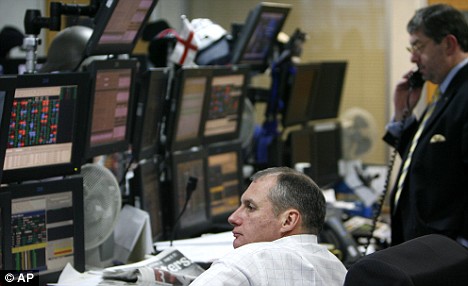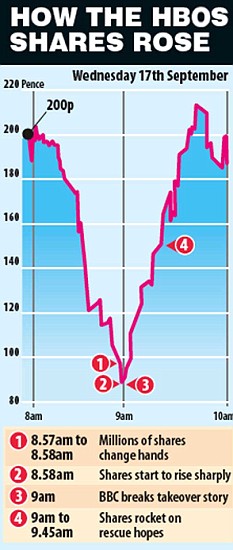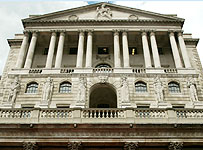HBOS sent another wave of panic through the banking industry today after revealing that its bad debts will top £8bn this year, wiping out more than half the £15.5bn of emergency capital raised by the lender so far.
Shares across the sector tumbled, with HBOS crashing 20pc and Lloyds TSB 17pc as HBOS investors gathered in Birmingham and voted on its merger with Lloyds TSB. Preliminary indications show they voted overwhelmingly in favour.
Royal Bank of Scotland was off 17pc and Barclays 13pc by early afternoon, while analysts at Dresdner Kleinwort said “more capital increases [are] virtually inevitable” on top of the £50bn being injected into Britain’s eight largest banks.
HBOS revealed that bad debts on mortgages, credit cards and corporate lending – plus writedowns on “toxic” debts – had reached £8bn in the first 11 months of the year. The figure is a £3.2bn increase since September alone.


